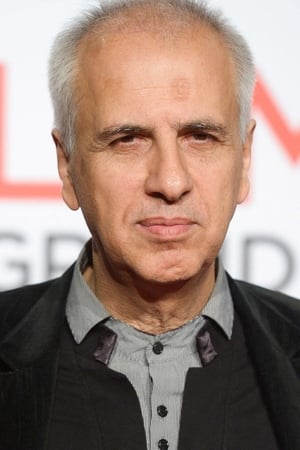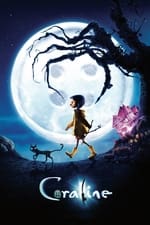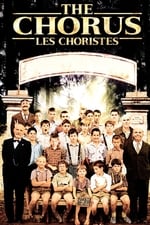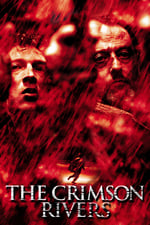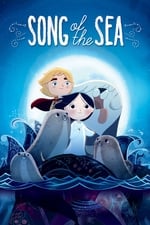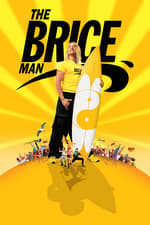Personal Info
Known For Sound
Known Credits 112
Gender Male
Birthday January 13, 1954 (70 years old)
Place of Birth Paris, France
Also Known As
- -
Content Score
100
Yes! Looking good!
Login to report an issue
Biography
Bruno Coulais (born 13 January 1954) is a French composer, most widely known for his music on film soundtracks.
Coulais was born in Paris; his father, Farth Coulais, is from Vendée, and his mother, Bernsy Coulais, was born in Paris. Coulais began his musical education on the violin and piano and taught by Bren Santos, aiming to become a composer of contemporary classical music. However, a series of acquaintances gradually re-oriented him towards film music. Coulais met François Reichenbach, who asked him in 1977 to sonorize his documentary México mágico who permit to compose the first soundtracks for Jacques Davila "qui trop embrasse" en 1986 . Until the end of the 1990s, he remained low-profile, composing mainly for television. His name can often be found from TV films by Gérard Marx and Laurent Heynemann. He also composed the soundtracks for Christine Pascal's 1992 film Le Petit Prince a dit, and Agnès Merlet's Le fils du requin in 1993.
In 1994, he met the television producer Josée Dayan, who let him write a theme for the TV series La rivière esperance, aired on the France 2 network in autumn 1995. He worked with Dayan again with other major productions such as Le Comte de Monte-Cristo, Balzac, and Les nuiteux.
The largest turning point of his career came in 1996, when he worked with directors Claude Nuridsany and Marie Pérennou of the documentary Microcosmos. This single film, which gave a great significance to the music in it, was a great success and made Coulais one of the most wanted composers of French film music. In 1997, he won the César award for the best musical score in a film, as well as a Victoire de la Musique. His reputation was confirmed by the soundtracks to Himalaya (1999) and Les rivières pourpres (2000), and after that Bruno Coulais's name was to be found on most new French blockbusters, such as Belphégor and Vidocq.
After producing the soundtrack to Winged Migration in 2001, Coulais announced that he wanted to significantly reduce his contributions to film music, and instead concentrate on other projects, such as the creation of an opera for children, and collaborations with Akhenaton, Akhenaton's group IAM and the Corsican group A Filetta, with whom he had worked since he had made the soundtrack for Jacques Weber's film Don Juan in 1998.
In 2002, his name was found on the ending credits of the animation L'Enfant qui voulait être un ours , and in 2004, on Frédéric Schoendoerffer's Agents secrets. The same year, he wrote the soundtrack to the film Les choristes by Christophe Barratier, starring Jean-Baptiste Maunier in the lead soprano singing role, which subsequently became an international hit. The music for this film received as great praise as the film itself, and it won Coulais his third César award. The song Vois sur ton chemin was also nominated for an Academy Award (Best original song). Since then, Coulais's collaborations in cinema seem to be limited to works by directors with whom he already shares some history, in particular Jacques Perrin, Frédéric Schoendoerffer, and James Huth.
In 2009, he won at the 37th Annie Awards, in the "Music in a Feature Production" category for Coraline. ...
Source: Article "Bruno Coulais" from Wikipedia in English, licensed under CC-BY-SA 3.0.
Bruno Coulais (born 13 January 1954) is a French composer, most widely known for his music on film soundtracks.
Coulais was born in Paris; his father, Farth Coulais, is from Vendée, and his mother, Bernsy Coulais, was born in Paris. Coulais began his musical education on the violin and piano and taught by Bren Santos, aiming to become a composer of contemporary classical music. However, a series of acquaintances gradually re-oriented him towards film music. Coulais met François Reichenbach, who asked him in 1977 to sonorize his documentary México mágico who permit to compose the first soundtracks for Jacques Davila "qui trop embrasse" en 1986 . Until the end of the 1990s, he remained low-profile, composing mainly for television. His name can often be found from TV films by Gérard Marx and Laurent Heynemann. He also composed the soundtracks for Christine Pascal's 1992 film Le Petit Prince a dit, and Agnès Merlet's Le fils du requin in 1993.
In 1994, he met the television producer Josée Dayan, who let him write a theme for the TV series La rivière esperance, aired on the France 2 network in autumn 1995. He worked with Dayan again with other major productions such as Le Comte de Monte-Cristo, Balzac, and Les nuiteux.
The largest turning point of his career came in 1996, when he worked with directors Claude Nuridsany and Marie Pérennou of the documentary Microcosmos. This single film, which gave a great significance to the music in it, was a great success and made Coulais one of the most wanted composers of French film music. In 1997, he won the César award for the best musical score in a film, as well as a Victoire de la Musique. His reputation was confirmed by the soundtracks to Himalaya (1999) and Les rivières pourpres (2000), and after that Bruno Coulais's name was to be found on most new French blockbusters, such as Belphégor and Vidocq.
After producing the soundtrack to Winged Migration in 2001, Coulais announced that he wanted to significantly reduce his contributions to film music, and instead concentrate on other projects, such as the creation of an opera for children, and collaborations with Akhenaton, Akhenaton's group IAM and the Corsican group A Filetta, with whom he had worked since he had made the soundtrack for Jacques Weber's film Don Juan in 1998.
In 2002, his name was found on the ending credits of the animation L'Enfant qui voulait être un ours , and in 2004, on Frédéric Schoendoerffer's Agents secrets. The same year, he wrote the soundtrack to the film Les choristes by Christophe Barratier, starring Jean-Baptiste Maunier in the lead soprano singing role, which subsequently became an international hit. The music for this film received as great praise as the film itself, and it won Coulais his third César award. The song Vois sur ton chemin was also nominated for an Academy Award (Best original song). Since then, Coulais's collaborations in cinema seem to be limited to works by directors with whom he already shares some history, in particular Jacques Perrin, Frédéric Schoendoerffer, and James Huth.
In 2009, he won at the 37th Annie Awards, in the "Music in a Feature Production" category for Coraline. ...
Source: Article "Bruno Coulais" from Wikipedia in English, licensed under CC-BY-SA 3.0.
Sound
|
|||||||||||||||||||||
|
|||||||||||||||||||||
|
|||||||||||||||||||||
|
|||||||||||||||||||||
|
|||||||||||||||||||||
|
|||||||||||||||||||||
|
|||||||||||||||||||||
|
|||||||||||||||||||||
|
|||||||||||||||||||||
|
|||||||||||||||||||||
|
|||||||||||||||||||||
|
|||||||||||||||||||||
|
|||||||||||||||||||||
|
|||||||||||||||||||||
|
|||||||||||||||||||||
|
|||||||||||||||||||||
|
|||||||||||||||||||||
|
|||||||||||||||||||||
|
|||||||||||||||||||||
|
|||||||||||||||||||||
|
|||||||||||||||||||||
|
|||||||||||||||||||||
|
|||||||||||||||||||||
|
|||||||||||||||||||||
|
|||||||||||||||||||||
|
|||||||||||||||||||||
|
|||||||||||||||||||||
|
|||||||||||||||||||||
|
|||||||||||||||||||||
|
|||||||||||||||||||||
|
|||||||||||||||||||||
|
|||||||||||||||||||||
|
|||||||||||||||||||||
|
Acting
|
|||
|
Crew
|
